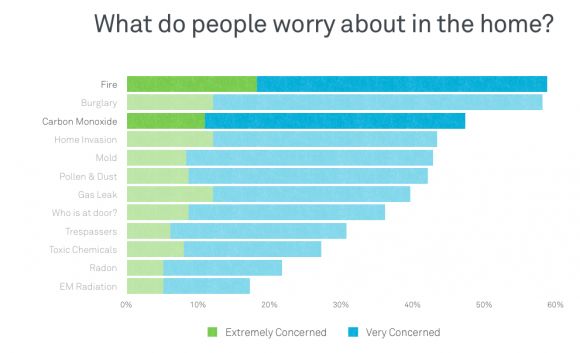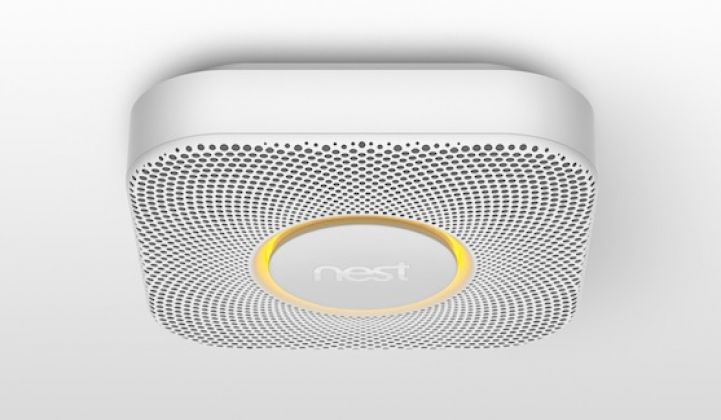Type "smoke alarm" into Google News and you'll find dozens of stories from the biggest publications -- the New York Times, Reuters, the Washington Post and the Wall Street Journal -- all riffing on the appliance.
Who the hell cares about smoke alarms? Up until this morning, very few.
That's when Nest Labs dropped its new intelligent smoke alarm on the market, and now the device is getting almost as much coverage as the newest smart phone.
Yes, the most important device you ever hated might just be cool.
"There are a lot of unloved products in the home," said Matt Rogers, Nest's vice president of engineering, in an interview. "There are so many products ripe for reinvention."
Nest is best known as the smart thermostat company founded by Rogers and Tony Fadell, two former Apple engineers who worked on the iPod and iPhone. Their philosophy is simple: blend simple, consumer-centric design with learning algorithms to turn a boring device (a thermostat) into something consumers will desire.
Back when the Nest thermostat was first launched, Greentech Media wondered if this approach would be enough to get people interested -- particularly since the product costs $249. However, consumers did end up responding, and the company has reportedly been shipping tens of thousands of thermostats each month. People are even buying it for holiday gifts. On Christmas day last year, Nest saw its highest number of installations ever.
But with the release of its latest product, Nest Protect, Nest isn't just a thermostat company any more.
"We are still definitely an energy company. That's one of the legs of the stool," explained Rogers. "That said, we are definitely more than a thermostat company and we're thinking about lots of things than can be reinvented."
The smoke alarm is arguably a top candidate for reinvention. Although it's one of the most important devices in the home, most people only notice it when low batteries cause an annoying beep or when smoke from the kitchen sets it off. Very often, these annoyances cause a user to unplug the smoke alarm and entirely forget about it. (Like most, I can speak with a great deal of experience on that issue.)
Nest's Wi-Fi-connected device could foster a level of interactivity that has been missing in smoke detectors. It will tell your smartphone if the batteries are draining; it will notify you if the alarm goes off when you're away; it will talk to you in a human voice that pinpoints the location of smoke or carbon monoxide; and it will let you swipe your hand to quickly turn off the device if it's a false alarm. The company has also packed in sensors that will allow it to develop new applications over time.
So why the smoke detector? Nest conducted its own survey of customers and found that fire was their top concern.

Given those results, this a story more closely related to safety than energy. But as the race to create new devices and applications for the connected home intensifies -- many of them enabling better control of energy -- Nest is attempting to take the lead by focusing on making mundane devices attractive to consumers.
"We aren't satisfied with the status quo of products out there. We're choosing things that no modern company has focused on," said Rogers. "And if we're going to build a product, we're going to do it with the richest, best design we possibly can."
Of course, proper skepticism is always warranted when a new boutique product like this hits the shelves. It's hard to imagine customers wanting to spend $129 on a smoke detector they can buy for one-third the price. But it was also hard to imagine consumers willing to pay $249 for a thermostat when Nest released that product.
Still, a thermostat is tied directly to controlling energy use, thus creating an additional financial benefit that a "dumb" thermostat doesn't offer. It will be interesting to see if a smart smoke alarm -- even one with so much consumer-focused functionality -- will stimulate the same response.
Although Nest is very secretive about its future plans, Rogers said the company is already figuring out new ways to make the product more attractive.
"When we released the thermostat, we didn't have demand response partnerships with utilities in place. We're already thinking ahead about what we can do with this, and we'll continue to develop new software at the same time."
Here's a preview of the smoke alarm, which will retail in November:



